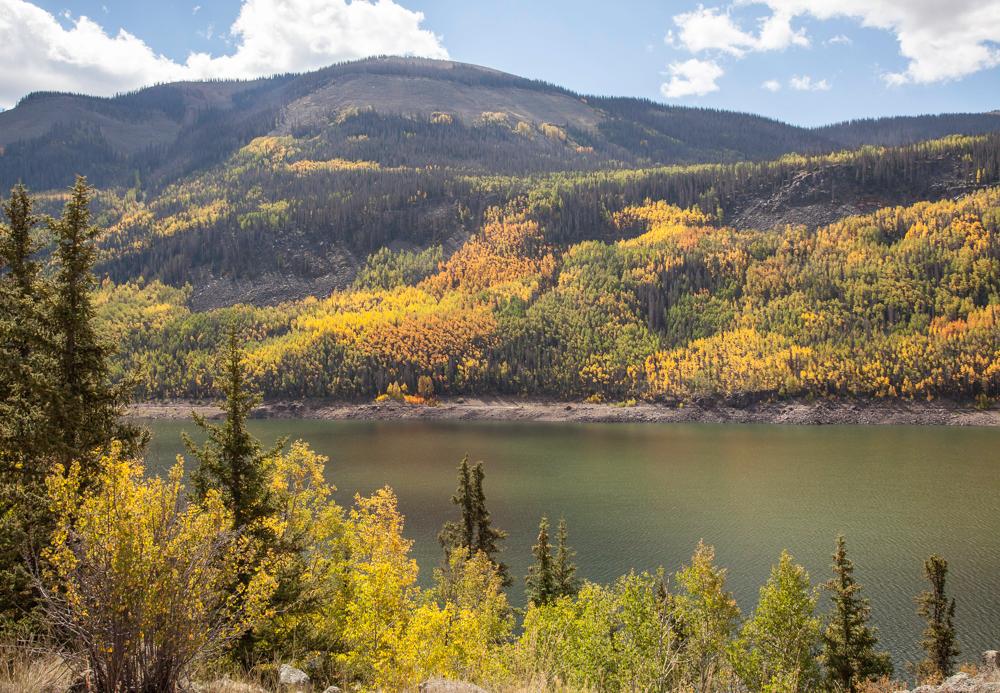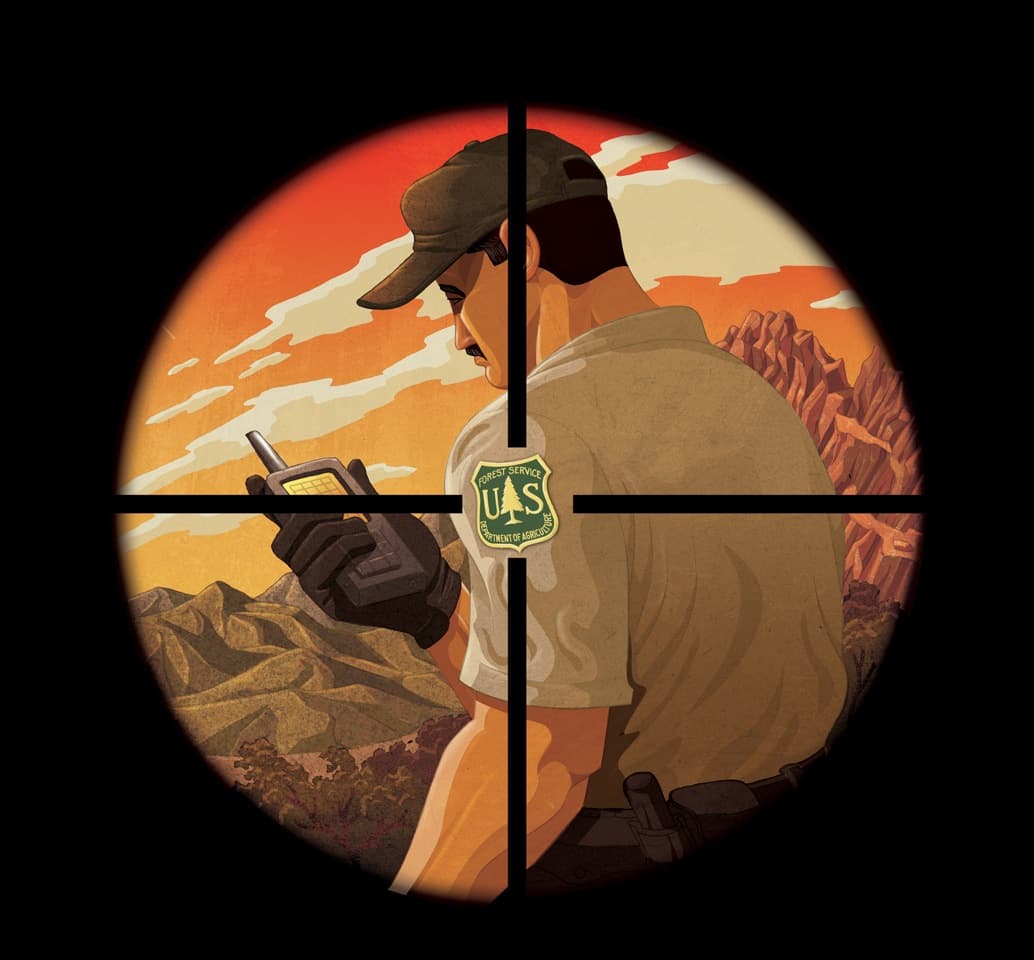
Then, a man in a Jeep confronted the employee. He grabbed the chain and locks and started to pull them away. He told her he had orders to stop people from going up the road.
“I became concerned that if [he] gained possession of the chain/locks he would be able to swing them out the Jeep window and hit me in the head,” the federal employee later wrote in an official report. “I grabbed his wrist, trying to keep control.”
In turn, he unleashed a stream of coarse, filthy language at her, she reported.
That incident is one of many such confrontations between citizens and federal lands employees highlighted in an ongoing, in-depth investigation by High Country News (HCN).
In recent years, rangers, fire-prevention officers and other uniformed federal workers in the forests have been threatened and assaulted -- even shot at -- across the West, says Ray Ring, an editor for HCN based in Montana.
The nonprofit news organization obtained dozens of reports through the Freedom of Information Act and noted many of the incidents involve people who are criminals or drunk. HCN journalists also noticed a growing trend of confrontations involving people who are deeply suspicious -- sometimes hostile -- towards the federal government.
“That appears to be playing a role in outcomes,” Ring says.
For instance, in June 2010, as two Bureau of Land Management (BLM) workers drove down a dirt road in southeastern Arizona, a man in a pickup truck sped past them, flipping them off. When the federal workers stopped to see what the truck would do next, watching it with binoculars, the driver stopped, pulled out a high-powered rifle, and began shooting at them, shattering the windshield of a BLM truck.

The BLM employees chased after him. Days later, Tracy Levi Thibodeaux was arrested at a rural post office, where he was picking up his Social Security check. Thibodeaux is a former building inspector.
Ring says Thibodeaux had a history of blaming the federal government for his problems. Thibodeaux even believed the government was trying to kill him. He was initially found mentally unfit for trial, but that decision was later reversed, Ring says. In 2013, Thibodeaux was convicted of attempted murder and sentenced to prison.
In an October 2011 incident, a 117-page hand-written letter threatened Forest Service employees in Colorado’s White River National Forest, along with a former sheriff, accusing them of being in an "(expletive) bastard secret society” and conspiring to murder people.
In a highly publicized case earlier this year, rancher Cliven Bundy and his supporters -- including snipers -- squared off against the BLM in a conflict over cattle grazing on federal lands. The BLM had won in its effort to remove Bundy's cattle from government lands in court.
“Similar incidents occur frequently without ever making the news,” Ring writes.
He argues that the increasingly anti-government rhetoric of politicians and right-wing media pundits only fanned the flames of hostility. For instance, U.S. Sen. Ted Cruz of Texas blamed the Obama administration for the standoff.
“I think the reason this issue is resonating (it’s resonating in Nevada, in Texas, it’s resonating across the country) is that for five years, we have seen our liberty under assault," Cruz said on a radio talk show. "We have seen our liberty under assault from the federal government that seems hell-bent on expanding its authority over every aspect of our lives.”
Former Republican House Leader, Tom Delay, told the conservative Newsmax that President Obama and U.S. Attorney General Eric Holder were to blame for the standoff.
“This is getting out of hand. When people are taking up arms, that means that the federal government and people like Obama and Holder have gone too far,” Delay said.
The investigative stories published by HCN aim to dial back such rhetoric and create what Ring says would be a more civil conversation about conflicts over federal lands and the employees who work in them.
“Most Westerners respect the role of government and are willing to work with federal employees to solve our region’s problems,” Ring writes in a separate opinion piece. “Those who oppose environmental regulations on federal land have nonviolent options, including court actions and electing presidents and members of Congress who agree with them. There’s more than enough violence and extremism in the world today. Let’s encourage reasonable Westerners across the political spectrum to speak out for civility toward the federal employees.”







